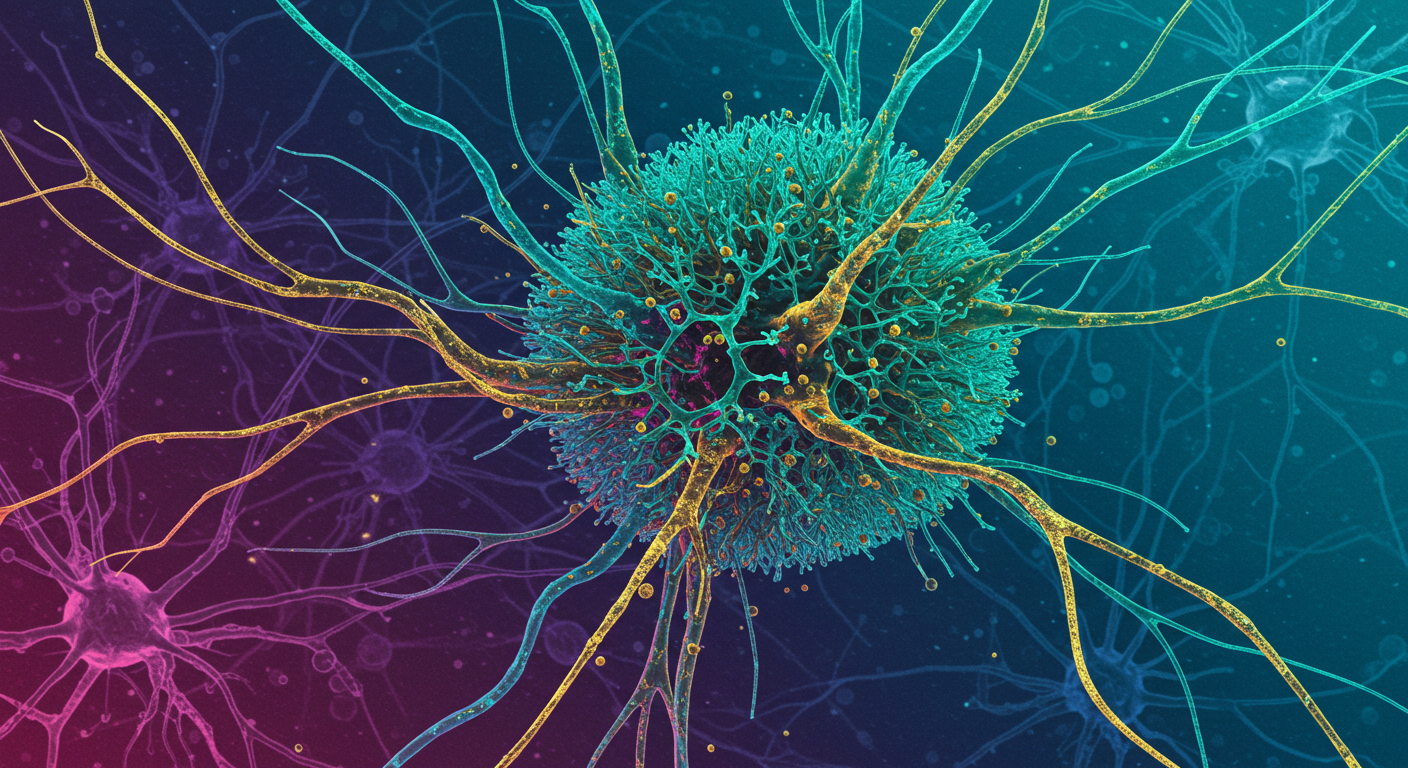Harnessing Your Brain’s Immune Cells to Prevent Alzheimer’s
For decades, amyloid beta plaques—the toxic clumps of a protein in the brain thought to be responsible for Alzheimer’s disease—have dominated clinical trial research and brought promising new drugs to market. A recent study out of Northwestern Medicine, however, is changing the conversation around dementia research, looking at harnessing your brain’s immune cells to prevent Alzheimer’s.
The study indicates that the answer to effective treatments lies in the brain’s inherent ability to ward off these plaques. Published in March 2025 in the journal Nature Medicine, the new research suggests that enhancing the brain’s own immune cells may be the missing link to effectively clearing amyloid beta plaques—and ultimately transform Alzheimer’s disease treatment as we know it.
What is the Alzheimer’s disease immune cell study?
The introduction of amyloid-targeting drugs donanemab (Kisunla) and lecanemab (Leqembi) has provided hope for the 7 million people living with Alzheimer’s disease in the U.S. and their caregivers. While these treatments have been amazing additions in the fight against Alzheimer’s, there are still new ideas, studies, and findings all the time.
Although there have been earlier efforts studying the immune system, looking at harnessing the brain’s immune cells, those proved to be unsuccessful. In 2001, AN-1792, the first Alzheimer’s disease vaccine launched into clinical trials, but was suspended the following year when some participants developed severe brain swelling.
In the new Northwestern study, scientists sought to understand what role the brain’s immune cells play in the development of Alzheimer’s. Researchers also wanted to determine how amyloid-targeting drugs work, so the treatments could potentially be more effective.
Zeroing in on the brain
The study was the first to use a technique called spatial transcriptomics, which allows scientists to identify the specific areas of gene activity inside a human brain with Alzheimer’s disease.
Using donated brain tissue from deceased people with Alzheimer’s disease, scientists analyzed tissue from those who received amyloid-beta immunization and compared it to brain tissue from those who did not. What they found is that when the treatment works, the brain’s immune cells (microglia) not only clear plaques, but they also help restore a healthier environment in the brain.
The study found that not all microglia are the same. For example, some effectively remove plaques while others do not. “This gives us the opportunity to investigate why some people are able to remove plaques from their brains, why some people don’t, and what the molecular genetic make-up is that facilitates [amyloid plaque] removal,” says Lynn van Olst, PhD, lead author of the study.
Researchers determined that—in treated brains—microglia can act differently depending on the region of the brain and the type of treatment received. Additionally, certain genes, such as APOE, are more active in microglia in response to the treatment, which helps the immune cells remove amyloid beta plaques. This may mean it’s possible to adjust the microglia’s response to amyloid plaques.
A unique study with unique findings
“A long-standing question in the field of Alzheimer’s therapeutics is if we coax these immune cells into removing the amyloid, are they just always going to be in that amyloid-removal mode?,” David Gate, PhD, one of the authors of the study stated in this article. “The answer we found is no, they can remove the amyloid and then go back to being good and appear to actually help the brain heal.”
This study is also the first to identify the mechanisms in microglia that help to limit the spread of amyloid in certain brain regions after treatment with amyloid-targeting drugs. Researchers said something else that made this study unique was their analysis of the largest cohort of postmortem brains from Alzheimer’s patients who’d been treated with amyloid-targeting drugs.
“This [cohort] allowed us to investigate the brain mechanisms that determine why some individuals respond well to these treatments and successfully clear toxic amyloid-beta, while others do not,” van Olst said in this article. “We found that brain immune cells play a crucial role in this process and identified the molecular genetic factors that drive these differences.”
What was the study design?
The study out of Northwestern University included six control brains without neurologic disease, six with Alzheimer’s disease not treated with any amyloid beta drug, and 13 brains previously treated in clinical trials.
Of the 13, seven showed high levels of amyloid-plaque clearance in the brain, while the other 6 had limited amounts of clearance. Researchers then compared the immune cells in the brains between the two groups.
The amyloid cascade hypothesis proposes that amyloid beta protein triggers the formation of tau tangles, which are thought to be the driver of cognitive decline in Alzheimer’s patients. If amyloid plaques can be cleared from the brain before they trigger tau tangle formation, the hypothesis goes, the downstream effects—and Alzheimer’s disease—can be stopped.
Targeting immune cells to develop new Alzheimer’s disease treatments
“If we can define the mechanisms associated with clearance of the [amyloid plaques], and we can find the genetic makeup of immune cells associated with people who respond well to the drug, then maybe one day we can circumvent the whole drug process and just target [and utilize] these specific immune cells,” Gate said. Although there is currently no way to control the cells, methods are improving every year. Harnessing your brain’s own immune cells is the ultimate goal.
For now, researchers say the study has provided valuable insights and will lay the foundation for more research and refining new treatments. “We all want to stop Alzheimer’s disease, and this offers hope that we can augment the immune system to help these patients and help their families dealing with this disorder,” Gate said in this video.
To learn about current clinical trials at Charter Research, call Charter Research at 407-337-3000 (Orlando) or 352-441-2000 (The Villages). You can also fill out the form on this page, and one of our representatives will call you within 24 hours (excluding weekends).
